|
After a four year investigation into the origins of the FBI’s probe into ties between Donald Trump’s 2016 presidential campaign and Russia, special counsel John Durham issued his report earlier this month. Donald Trump and his allies would have you believe that the report uncovered the “crime of the century”, the existence of a “deep state” out to get him, and an FBI weaponized against him. This is not what the report indicated. The Durham report revealed very little that hadn’t previously been reported in prior investigations and in the press. The Durham report should be the last word on the Trump-Russia probe, but it won’t be. Donald Trump will use the report as proof that he is the victim of a deep state conspiracy, and use it throughout his 2024 presidential campaign as a shield against all pending accusations against him. Therefore, the subject deserves just a little more of our time before we relegate it to the trash heap of yesterday’s news. Time Line of Events in Trump-Russia Probe: A review of the time line of events may help to make some sense of the Durham report. July 31, 2016: The FBI began an investigation, code named “Crossfire Hurricane”, into possible links between the Trump 2016 presidential campaign and Russian officials, and to possible Russian meddling in the presidential election. This investigation would be taken over by the Mueller investigation in May of 2017. May 9, 2017: President Trump fired FBI Director James Comey. May 17, 2017-May 29, 2019: Special Counsel Robert Mueller was appointed to investigate Russian interference in the 2016 presidential election, links between the Trump campaign and Russian officials, and possible obstruction of justice arising from the firing of FBI Director Comey. March 22, 2019: The Mueller report was issued. The main findings of the report are as follows:
December 8, 2019: Michael Horowitz, the Inspector General of the Department of Justice, issued a report on the findings of his investigation, started in early 2018, into how the FBI came to investigate the Trump campaign’s possible links to Russia. In his report, Horowitz concluded that the FBI had a legitimate purpose in opening its investigation known as Crossfire Hurricane, and that there was no evidence that political bias or improper motivation influenced the decisions to open investigations into some of Trump’s campaign advisors. But the Horowitz report was critical of how the FBI handled the applications for surveillance under the Foreign Intelligence Surveillance Act, targeting Trump campaign aide Carter Page. The report outlined “serious performance failures” requiring major changes. Horowitz also called for greater oversight before the FBI opens a politically sensitive investigation. Attorney General Barr and U.S. Attorney John Durham disagreed with Horowitz’s conclusion that the FBI was justified in opening the Crossfire Hurricane investigation. Barr urged Durham to continue his investigation into possible FBI missteps during the Trump-Russia investigation. According to Barr’s memoir, as the 2020 election neared, Donald Trump was angry that no charges were leveled against the FBI. October 19, 2020: Attorney General William Barr Attorney appointed John Durham as a special counsel to provide him and his team the assurance that their investigation could continue regardless of the outcome of the 2020 presidential election. Durham Report: Issued on May 15, 2023, the 316-page Durham report was the conclusion of a 4 year investigation set in motion by Donald Trump’s Attorney General, William Barr. Pressured to do so by Donald Trump, Barr hoped to prove that the FBI’s investigation into possible collusion between Trump’s 2016 campaign and Russia was nothing more than a political witch hunt. But the report failed to do so, and provided no new revelations that hadn’t been previously reported by Robert Mueller and Michael Horowitz. The Durham report is highly critical of the FBI’s behavior, finding that the bureau acted too hastily and relied on raw and unconfirmed intelligence when it opened the Trump-Russia investigation. But the report does not recommend any new charges against any law enforcement officials or changes to FBI guidelines and policy. Durham claims no political bias on the part of the FBI. He rightly points out certain individuals within the FBI who showed personal bias against Trump, but he could find no institutional bias. It seems to me that the Durham investigation was politically motivated, and a tool to help Donald Trump’s reelection chances. FBI’s Impact on 2016 Presidential Campaign: On July 10, 2015 the FBI opened a criminal investigation into Hillary Clinton’s handling of classified information while she was Secretary of State. As you may remember, this centered around the use of a personal server to store her government emails. On July 5, 2016 FBI Director James Comey issued a public statement indicating that the investigation was being closed with no recommendations for charges against Hillary Clinton. Then in late September of 2016, the FBI discovered a trove of emails from Hillary Clinton on the laptop of Anthony Weiner, the husband of Clinton aide Huma Abedin. On October 28, 2016 Director Comey informed Congress (and the world) of the existence of the newly found emails and that the investigation into Clinton would be reopened. It was highly unusual and consequential for the FBI to make this information known less than ten days before a presidential election. On November 6, 2016 Director Comey informed Congress that a review of the recently discovered Clinton emails provided no relevant information and the case would be closed. But with early voting underway in most states, the damage had already been done. The rest is history. Throughout most of the 2016 presidential campaign Hillary Clinton had the black cloud of “email-gate” hanging over her head. At the same time the American public had no idea that the FBI was investigating the Trump campaign for possible ties to Russia. With all of Trump’s claims of a witch hunt, he fared much better at the hands of the FBI than did Hillary Clinton. The 2024 presidential election is heating up, Donald Trump’s legal problems are mounting, and you have more important things to think about. So, you can be forgiven if you have forgotten all about the 2016 Trump-Russia investigation conducted by the FBI. The Durham report has brought the subject back front and center, and Donald Trump will use it to spin a narrative of “victimhood” throughout his campaign. Trump and his allies will continue to beat the drum of deep state conspiracies against him. But don’t buy it.
Let’s hope that no more public funds are spent on useless investigations that attempt to rewrite history and weave false narratives. Now go out and enjoy the summer months before things really get crazy. If you enjoy reading this type of commentary please subscribe to my blog and tell a friend. You will receive an email notification when new blogs are posted. The email will come from the site’s email: armchairamerican1776 @gmail.com. Thanks, Armchair American
0 Comments
As the highest court in the land, the United States Supreme Court plays a critical role in our constitutional form of government. It is independent of, but co-equal to Congress and the Executive Branch of our federal government. Without a deep commitment to the rule of law, and a belief that justice is truly equal under law, our system of government would collapse. The Supreme Court is the court of last resort for those seeking justice, and it protects the rights of citizens by striking down any law that violates the Constitution. Therefore, the Supreme Court must be seen as independent of outside influences, and it must adhere to the highest levels of transparency and ethical standards in rendering its decisions. Revelations in recent weeks of unreported gifts to Justice Clarence Thomas have raised questions by the American people and members of Congress about the integrity of the Supreme Court. ?In extensive reporting last month by ProPublica, it has come to light that Supreme Court Justice Clarence Thomas has for many years been the beneficiary of unreported gifts from Harlan Crow, a Texas billionaire with close ties to the Republican Party. These gifts included lavish international travel, real estate deals, and tuition payments made on behalf of Thomas’ grandnephew. Harlan Crow also funded a political group founded by Thomas’ wife which paid her a $120,000 salary. None of this has been disputed by Crow or Justice Thomas. On several occasions during his tenure at the Court, Clarence Thomas complained about the low pay for Supreme Court Justices, further fueling calls for Congressional investigations into his actions. Do these revelations about Justice Thomas represent possible conflicts of interest or unethical behavior? Possibly. But they don’t represent violations of any laws or codes of conduct applicable to the Supreme Court, and therein lies the problem. Calls for Change: On April 20th two senators introduced a bipartisan bill designed to force the Supreme Court to establish a code of ethics. Earlier this month the Democrat controlled Senate Judiciary Committee held hearings highlighting possible ethical lapses by Justice Clarence Thomas, and the need to adopt more transparency and clearly defined ethical standards. Chief Justice John G. Roberts Jr. declined an invitation to appear before the committee, citing issues related to the separation of powers and the importance of preserving judicial independence. It is no surprise that Republicans called the hearings a partisan attack on a conservative member of the Court, and promised to thwart any legislation that the Democrats put forth to constrain the Court in any way. Even though the hearings won’t produce any Congressional action, several Republican Senators, including Lindsey Graham of South Carolina, urged the Supreme Court to take actions to improve transparency and instill more public confidence. The Congressional hearings and public calls for the Supreme Court to be more transparent have not gone unnoticed by Chief Justice Roberts. In a rare written statement defending the Court, Roberts sent a letter to the chairman of the Senate Judiciary Committee which included a Statement on Ethics Principles and Practices signed by all nine Supreme Court Justices. The statement lists the statues and guidelines which the Court uses to address specific ethical issues. I applaud the Court for providing some of its principles and practices. But these are all voluntary guidelines and the Court is not compelled to follow them. The statement doesn’t address the apparent ethical issues surrounding gifts received by Justice Thomas. It is still unclear whether or not Chief Justice Roberts deems these gifts to be inappropriate, and if so, what corrective actions will be taken. What Can be Done? In 1973 The Code of Conduct for United States Judges was adopted by the Judicial Conference to promote public confidence in the integrity, independence, and impartiality of the federal judiciary. The Code governs the behavior of most federal judges, but it does not apply to the Justices of the Supreme Court. In fact, the Supreme Court is not bound by any formal code of conduct. There have been several attempts by Congress to impose a code of conduct on the Supreme Court, but most have run into legal problems. Separation of powers between the three branches of government prevents the Congress from mandating how the Court conducts its internal affairs. Even if the Congress was to pass legislation that directed the Court to adopt reforms, the Court could deem the legislation unconstitutional. What Should be Done? Even if Constitutional issues could be overcome, Congress is too polarized to pass any meaningful legislation that would impact the Supreme Court. The Supreme Court clearly has a credibility issue with the American people. It is not up to Congress to remedy this situation. It is the responsibility of Chief Justice Roberts, and his legacy depends on it. Here are two suggestions:
For the credibility of the Supreme Court, this should be done quickly and communicated to the American people. The Supreme Court is the only branch of the federal government that is unelected and unaccountable to the American people. Therefore, it must be above reproach and its actions and deliberations should be transparent. Unreported gifts to Justice Clarence Thomas have brought into question the integrity of the Court in recent weeks. The fallout from these revelations is of the Court’s own making, and only the Court can remedy the situation. Chief Justice Roberts must take clear and decisive action to preserve the integrity of the Court, otherwise our system of government could be in peril. Update November 13, 2023: The Supreme Court announced today that it had issued an ethics code for its justices. All nine justices signed on to the new rules.
It has been a long time coming, and is evidence that the Court is listening to the American people and the Congress. The code is not perfect, but it is certainly a step in the right direction. The main complaint against the new code is that it has no enforcement mechanism and is therefore toothless. It is doubtful that if the code had previously been in place, it would have curbed the behavior of Justice Thomas (outlined in the blog). Here is a link to the new code of ethics: https://www.supremecourt.gov/about/Code-of-Conduct-for-Justices_November_13_2023.pdf If you enjoy reading this type of commentary please subscribe to my blog and tell a friend. You will receive an email notification when new blogs are posted. The email will come from the site’s email: armchairamerican1776 @gmail.com. Thanks, Armchair American |
AuthorThe Armchair American. Archives
November 2024
Categories
All
|
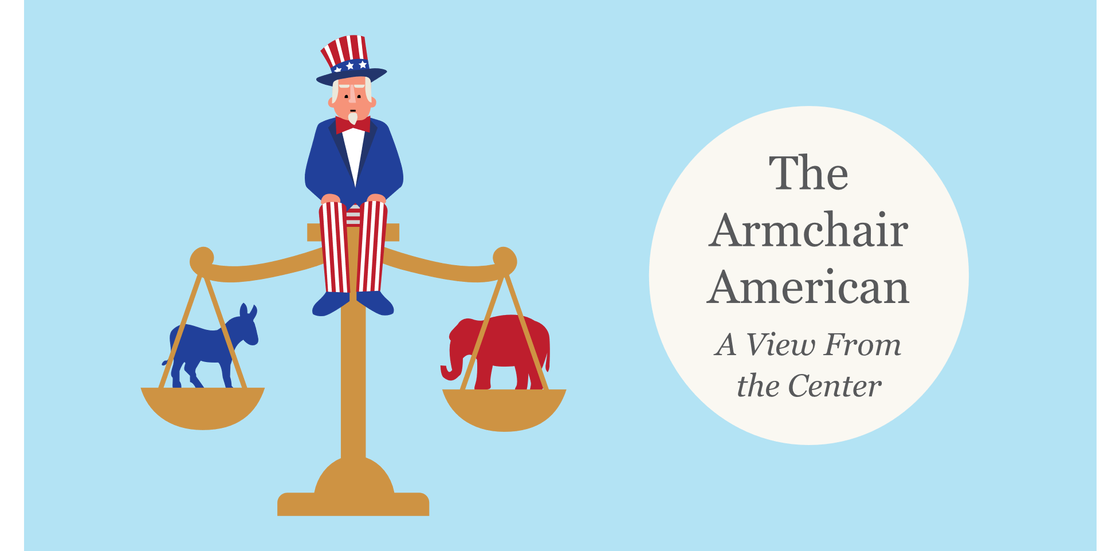
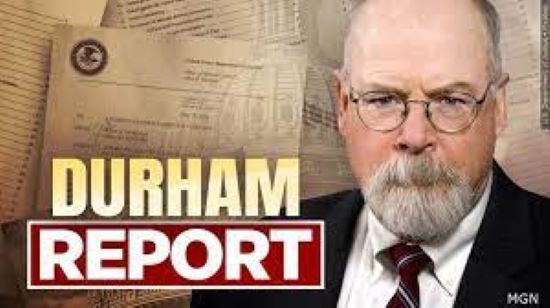
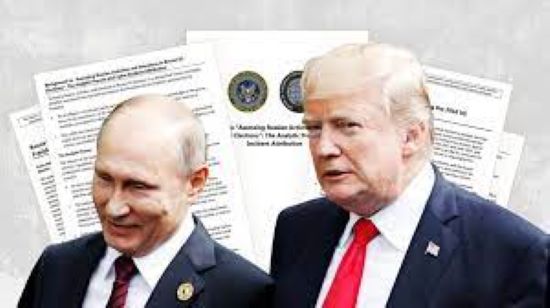
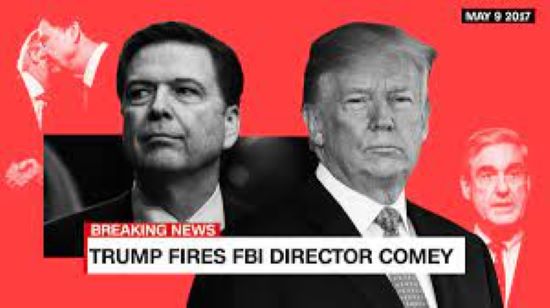
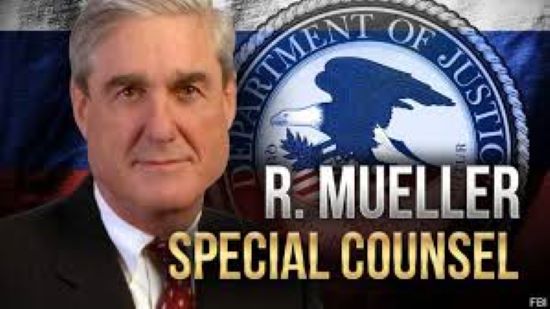
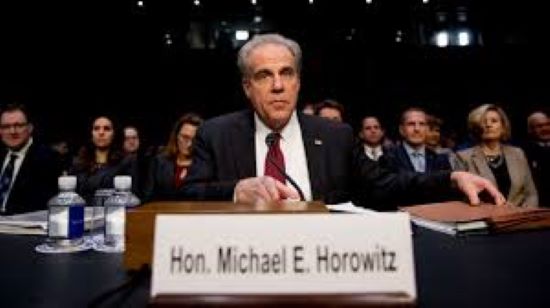
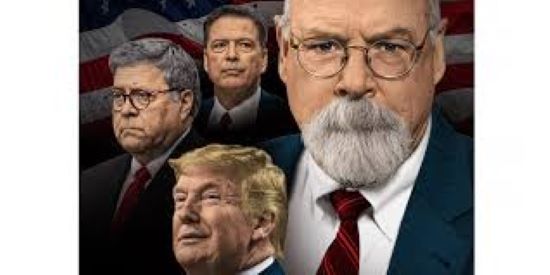


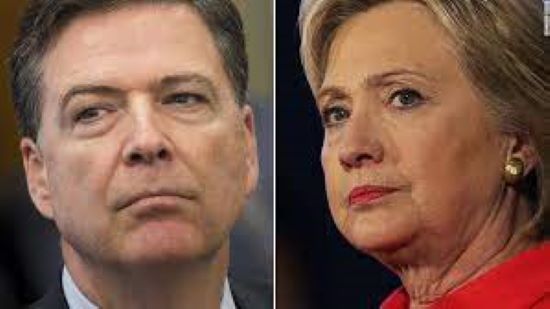
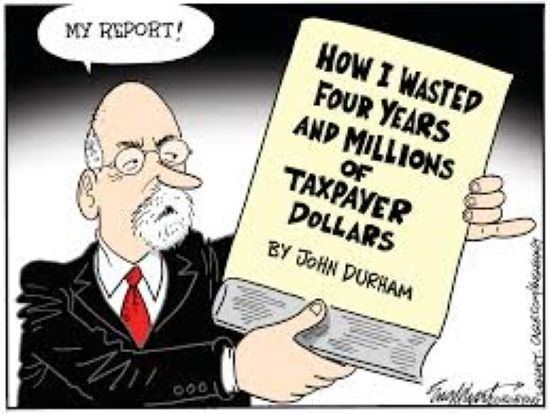
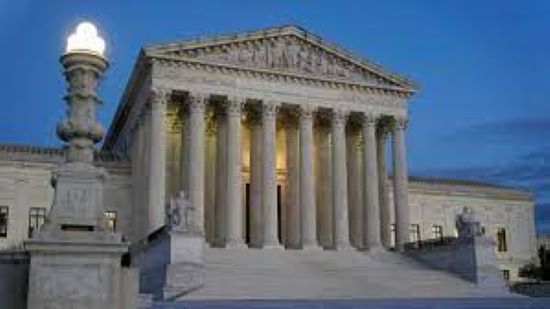
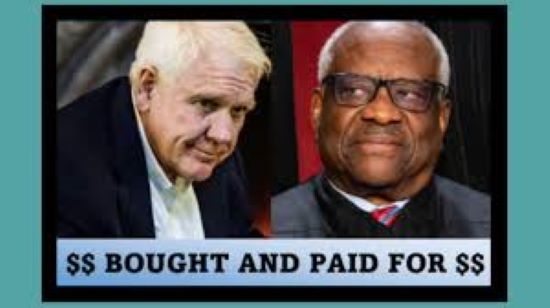
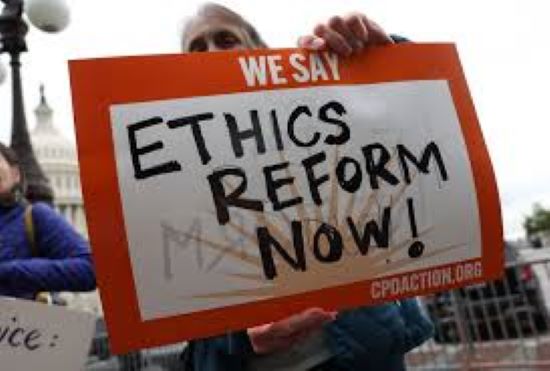


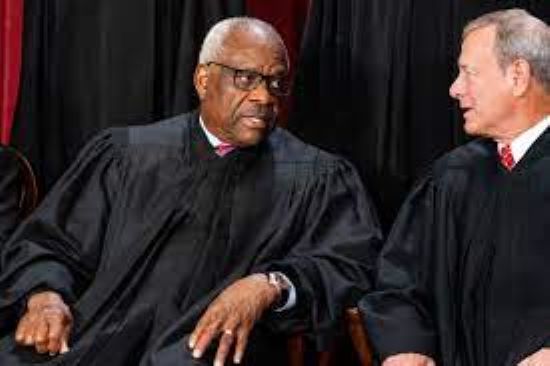


 RSS Feed
RSS Feed